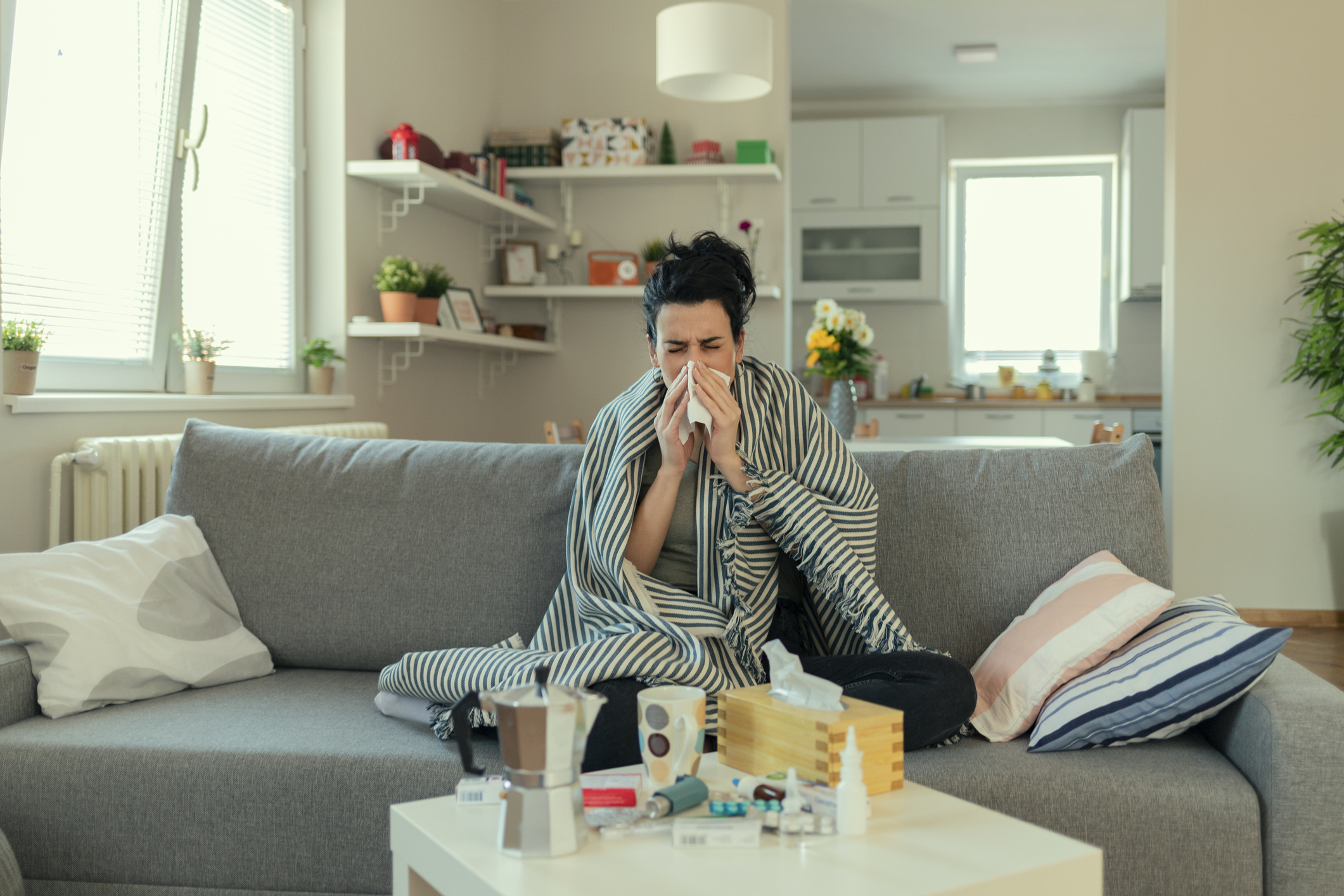Many of us experience allergy symptoms — like a runny nose, itchy eyes, and nasal congestion — when the seasons change. But for people living with asthma, seasonal allergies can cause more serious reactions.
What are seasonal allergies?
Seasonal allergies develop when the body’s immune system overreacts to something in the environment. This usually happens during spring, summer, or fall when certain plants pollinate. In many areas of the U.S., spring allergies can begin as early as February — usually caused by tree pollen — and last until the early summer when grass pollen is at its height. This may be followed soon after by fall allergies, typically brought on by ragweed.
For some people, these substances trigger what is commonly known as “hay fever” (allergic rhinitis), which causes itching, sneezing, and coughing and leads many of us to seek medical advice to help manage these symptoms.
What is asthma?
Asthma is a chronic (long-term) condition that affects the airways in the lungs. An “asthma attack” happens when a trigger causes the lungs to narrow and swell and may be associated with increased mucus production.This makes it hard for air to pass through the lungs and leads to wheezing, coughing, and difficulty breathing.
There are several types of asthma, including:
· Allergic asthma.
· Aspirin-induced asthma.
· Cough-variant asthma.
· Exercise-induced asthma.
· Nighttime asthma.
· Steroid-resistant asthma.
· Occupational asthma.
Each type of asthma is triggered by a different substance or activity. Although there is no cure for asthma, it can be managed with certain medicines and lifestyle adjustments. For example, a person with exercise-induced asthma only experiences symptoms during or right after demanding physical activity. Their doctor may suggest taking a certain type of medicine before exercising or avoiding certain types of exercise.
How are asthma and allergies connected?
As its name suggests, allergic asthma is triggered by allergens. These allergens can include certain types of food, pet dander, or the same substances that cause hay fever.
An allergic response occurs when immune system proteins (antibodies) mistakenly identify a harmless substance, such as tree pollen, as an invader. The chemicals your body produces to fight the threat lead to allergy symptoms. For some people, this same reaction also affects the lungs and airways, leading to asthma symptoms.
People with a family or personal history of hay fever and allergies are at greater risk of developing allergic asthma. It is critical to tell your doctor if you experience wheezing or shortness of breath, as it could be a sign of asthma or another medical condition.
Although both asthma and allergies can be frustrating, they can be managed so you can get outside and enjoy the season.
Click here to learn more about managing asthma.
References:





